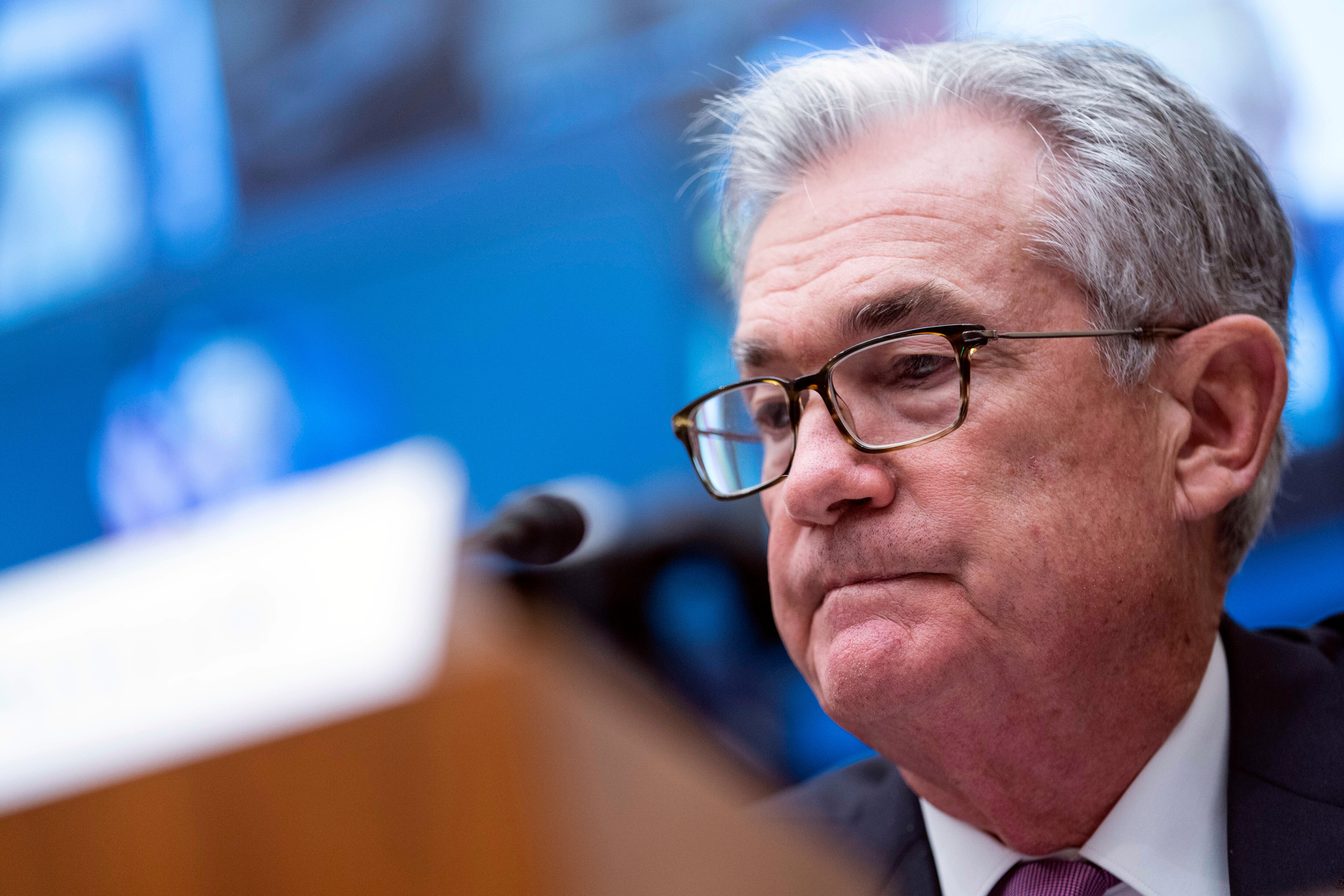Fed to begin slowing economic aid as inflation worries rise
The Federal Reserve will begin dialing back the extraordinary economic aid it’s provided since the pandemic erupted last year, a response to high inflation that now looks likely to persist longer than it did just a few months ago

Your support helps us to tell the story
From reproductive rights to climate change to Big Tech, The Independent is on the ground when the story is developing. Whether it's investigating the financials of Elon Musk's pro-Trump PAC or producing our latest documentary, 'The A Word', which shines a light on the American women fighting for reproductive rights, we know how important it is to parse out the facts from the messaging.
At such a critical moment in US history, we need reporters on the ground. Your donation allows us to keep sending journalists to speak to both sides of the story.
The Independent is trusted by Americans across the entire political spectrum. And unlike many other quality news outlets, we choose not to lock Americans out of our reporting and analysis with paywalls. We believe quality journalism should be available to everyone, paid for by those who can afford it.
Your support makes all the difference.The Federal Reserve will begin dialing back the extraordinary economic aid it's provided since the pandemic erupted last year, a response to high inflation that now looks likely to persist longer than it did just a few months ago.
In a statement Wednesday after its latest policy meeting, the Fed said it will start reducing its $120 billion in monthly bond purchases in the coming weeks, by $15 billion a month, though it reserved the right to change that pace. Those purchases have been intended to hold down long-term interest rates to encourage borrowing and spending. With the economy recovering, that's no longer needed.
The Fed will slow its $80 billion in Treasury purchases by $10 billion a month and its $40 billion in mortgage-backed securities by $5 billion in November and December and said similar reductions “will likely be appropriate” in the following months. That suggests that the central bank might decide to accelerate its pullback in bond buying if inflation worsens.
If the pace is maintained, the bond purchases would end altogether in June. At that point, the Fed could decide to raise its benchmark short-term interest rate, which affects many consumer and business loans.
The changes reflect a central bank that is rapidly shifting from an effort to boost the economy and encourage more hiring to one that is increasingly focused on rising inflation. Prices jumped in September from a year earlier at the fastest pace in three decades. The Fed now faces the delicate task of winding down its low-rate policies, which it hopes will slow inflation, without doing that so rapidly as to weaken the job market or even cause another recession.
The economy has steadily recovered from the pandemic recession, although growth and hiring stumbled in the July-September quarter, partly because a surge in delta cases discouraged many people from traveling, shopping and eating out.
Many economists say they're hopeful that with vaccinations increasing and the delta wave fading, job growth will pick up in October from September's weak pace. The October jobs report will be released Friday.
Last week, the government reported that prices surged 4.4% in September from a year earlier — the fastest 12-month increase since 1991. Yet while inflation is running hot, the job market isn’t back to full strength. The unemployment rate was 4.8% in September, above its pre-pandemic level of 3.5%. And roughly 5 million fewer people have jobs now than did before the pandemic.
That puts Fed officials, particularly Chair Jerome Powell in a bind: They might want to keep their benchmark short-term interest rate at nearly zero, where it has been pegged since last March, to boost the economy and encourage more hiring. But they are facing growing pressure, including from Republican lawmakers in Congress, to rein in rising prices, which are offsetting much of the benefit that many Americans have enjoyed from recent wage increases.
Wages and salaries soared in the July-September period by the most in at least 20 years. That suggested that workers are increasingly able to compel higher pay from businesses that are desperate to fill a near-record number of open jobs. But the gain was largely offset by rising inflation. And large pay increases can drive up inflation further if companies raise prices to cover their higher costs.
The Fed’s meeting occurred as Powell’s future as Fed chair remains uncertain. President Joe Biden has yet to announce whether he will re-nominate Powell for another four-year term. Powell’s current term expires in early February, but previous presidents have usually announced such decisions in the late summer or early fall.